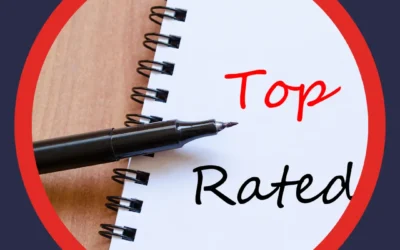The Sound of Wellness: Supplements for Hearing Health
Eating well plays a crucial role in maintaining overall health, including the health of your ears. Dr. Sharon G. Curhan, MD, a leading expert in the field and director of The Conservation of Hearing Study, emphasizes the importance of diet in preventing age-related hearing loss. Diets like the Mediterranean or DASH diets, known for their positive impact on blood circulation, can indirectly support ear health. Good circulation is vital for maintaining hearing health. The right supplements for hearing health can also support your auditory well-being.
Boosting Your Hearing: Supplements for Hearing Health
Certain vitamins, minerals, herbs, and dietary supplements can potentially reduce hearing loss and tinnitus risks. However, it’s important to note that while a healthy diet might delay or slow the progression of hearing decline, it cannot reverse hearing loss. Supplements for hearing health should complement, not replace, the main treatment. The connection between heart and ear health lies in the steady flow of oxygen-rich blood, highlighting the importance of overall cardiovascular health for maintaining hearing function.

Omega-3 Fatty Acids: The Unsung Heroes of Ear Health Vitamins
Omega-3 fatty acids are vital for maintaining hearing health. These supplements for hearing health, which your body cannot produce alone, play significant roles in various body systems, including the immune and cardiovascular systems. The Office of Dietary Supplements (ODS) highlights their importance across bodily functions.
The Mediterranean diet, known for its high fish content and associated with reduced age-related hearing loss, is an excellent source of Omega-3s. A 2010 American Journal of Clinical Nutrition study found an inverse relationship between omega-3 intake and hearing loss. Higher consumption of these fatty acids correlates with lower hearing loss rates, suggesting their potential to prevent or delay age-related hearing deterioration.
Beyond their well-known anti-inflammatory and anti-aging effects, omega-3s, especially docosahexaenoic acid (DHA), are crucial in ear health. They are abundant in the brain and inner ear, contributing to the structure and function of auditory cells
Protective Effects on Hearing:
- Noise-Induced Hearing Loss: Omega-3s help counteract inflammation and oxidative stress caused by excessive noise, thus protecting auditory cells.
- Age-Related Hearing Loss: These fatty acids may slow down age-related hearing loss by maintaining the health of cochlear hair cells, which detect sound vibrations.
- Ototoxic Drug-Induced Hearing Loss: Omega-3s could potentially reduce the damaging effects of certain medications known to harm auditory cells, like aminoglycoside antibiotics.
So the role of Omega-3 fatty acids in maintaining and protecting ear health is significant, offering a promising avenue for hearing loss prevention and management.
Understand more about ototoxic medications.
Magnesium and Zinc: Essential Hearing Loss Supplements
Magnesium and zinc support ear health and potentially prevent hearing loss. These minerals play diverse roles in overall health and have specific benefits for auditory wellness.
Magnesium’s Role as a Hearing Loss Supplement
- Enhancing Low-Tone Hearing: A 2004 trial suggests magnesium may improve low-tone hearing when combined with steroid treatment in sudden hearing loss cases.
- Combatting Free Radicals: Magnesium helps neutralize free radicals produced during loud noise exposure, protecting the inner ear’s hair cells.
- Alleviating Tinnitus Symptoms: Some studies, including one in the Australian Journal of General Practice, indicate magnesium may lessen tinnitus severity. However, more research is needed.
- Promoting Healthy Blood Flow: Essential for maintaining healthy blood vessels, magnesium ensures the ear receives the necessary oxygen, which is crucial for hearing.
Zinc’s Role as an Ear Health Vitamin
- Tinnitus Management: Zinc may benefit individuals with zinc deficiency by reducing tinnitus symptoms, as noted in Tinnitus Today. Yet, supplementation might not affect tinnitus for those with normal zinc levels.
- Supporting Immune Function: Zinc is widely known for bolstering immunity and aiding in cell growth and wound healing. It’s effective in treating tinnitus and ear infections, though it may interact with certain medications.
- Cochlea Protection: Zinc maintains the cochlea’s integrity, the auditory hair cells’ home in the inner ear.
- Nerve Function: It’s essential for the growth and repair of auditory hair cells and maintaining the hearing nerve’s function.
Magnesium and zinc are vital for ear health. They protect auditory cells, combat oxidative stress, and support blood flow and nerve function, which are crucial for hearing. While research continues to evolve, these minerals offer promising support for those looking to maintain or improve their hearing health.
Hearing Loss Supplements: Other Ear Health Vitamins and Minerals
Specific vitamins, minerals, and supplements are pivotal in maintaining and improving hearing health in auditory wellness. Beyond Omega 3s, magnesium, and zinc, here’s an overview of other supplements for hearing health:
- Vitamin D: Crucial for immune regulation and cell growth, vitamin D deficiency may increase hearing loss risk, especially in older adults. Sun exposure, diet, and supplements are ways to ensure adequate vitamin D levels.
- Folate/Folic Acid (Vitamin B9): Essential for cell division and DNA synthesis, folate deficiency is linked to increased hearing loss risk, notably in older women.
- Vitamin A: Vital for healthy cell membranes and immune function, vitamin A deficiency might contribute to hearing loss.
- Vitamin E: An antioxidant, vitamin E protects cells from free radical damage. Deficiency may heighten the hearing loss risk.
- Potassium: Key in nerve function and fluid balance, potassium deficiency might be linked to hearing loss.
- Ginkgo Biloba: Traditionally used in Chinese medicine, ginkgo biloba may improve blood circulation and reduce oxidative stress, benefiting hearing health. Further research is needed.
- Coenzyme Q10 (CoQ10): Involved in cellular energy production, CoQ10 might protect against noise-induced hearing loss, though more studies are required.
- Iron: Iron deficiency, or anemia, impacts hemoglobin production, crucial for oxygen transport in the body. A Penn State study found a link between anemia and adult hearing loss.
- Additional B Vitamins (B1, B6, B12): These vitamins enhance hearing acuity and slow natural aging. They play a role in cell growth and maintaining auditory nerve health.
While more research is needed to fully understand these nutrients’ effects on hearing, a balanced diet supplemented with these vitamins and minerals, under medical guidance, may provide additional support for ear health and potentially reduce the risk of hearing loss.

Natural Boosters: Foods Rich in Ear Health Vitamins and Nutrients
Maintaining optimal ear health involves a holistic approach with a balanced diet rich in essential nutrients.
Foods That May Reduce the Risk of Hearing Loss
- Leafy Green Vegetables: Foods like spinach, kale, broccoli, and Swiss chard are abundant in folate (vitamin B9), which is crucial for inner ear health. They also contain vitamin K and magnesium, protecting auditory cells and ensuring healthy blood flow to the ear.
- Fatty Fish: Consuming tuna, salmon, and herring at least twice a week can lower hearing loss risk. These fish are rich in omega-3 fatty acids, vital for the structure and function of auditory cells, and known for their anti-inflammatory and heart health benefits.
- Legumes: Beans, lentils, and chickpeas are high in zinc, essential for auditory cell health and noise-induced hearing loss protection.
- Nuts and Seeds: Almonds, walnuts, chia seeds, and flaxseeds provide magnesium, vitamin E, and antioxidants, supporting auditory cell protection and overall ear health.
- Citrus Fruits: Oranges and grapefruits offer vitamin C, essential for collagen production, and protect cells in the inner ear from free radical damage.
- Colorful Fruits and Vegetables: Bell peppers, carrots, tomatoes, and pumpkins, rich in antioxidants and vitamins like beta-carotene and potassium, help regulate inner ear fluid and reduce hearing loss risk.
- Eggs and Dairy: Loaded with vitamin D, these foods are associated with lower odds of hearing problems.
- Fortified Foods: Breakfast cereals, milk, and orange juice fortified with vitamins like D and folate and minerals like calcium contribute to ear health.
You can support your auditory wellness by incorporating these nutrient-rich foods into your diet. A varied diet, including colorful fruits and vegetables, dairy, and fortified foods, ensures an adequate intake of ear-beneficial nutrients. Consult healthcare professionals for personalized dietary advice. Remember, a nutritious diet complements a comprehensive ear health strategy.
Discover more about foods for hearing health.

Navigating Supplements for Hearing Health Safely
When considering hearing loss supplements, it’s essential to approach them with caution and informed decision-making. Supplements, while beneficial, can sometimes interact harmfully with medications or exacerbate certain conditions.
Guidelines to safely choose and use supplements:
- Consult a Healthcare Professional: Before starting any supplements, especially if you have underlying health conditions or are on medications, consult a healthcare professional. They can evaluate potential interactions and advise on suitable supplements and dosages.
- Select Reputable Brands: Opt for supplements from credible manufacturers that adhere to quality control and good manufacturing practices. Look for third-party certifications like NSF International or USP Verified, indicating independent testing for purity and potency.
- Begin with Lower Doses: Start with smaller doses and increase them gradually, if needed, under medical guidance. This allows your body to adapt and helps monitor for side effects.
- Be Aware of Interactions: Inform your healthcare provider about all supplements and medications you take, including over-the-counter drugs and herbal remedies. Some supplements can interact with medicines, affecting their efficacy or causing adverse reactions.
- Monitor for Side Effects: Pay attention to any potential side effects, such as digestive issues or headaches, after starting supplements. If adverse effects occur, stop the supplements and seek medical advice.
- Don’t Exceed Recommended Dosages: Avoid taking more than recommended supplements. Excessive intake can lead to negative effects or toxicity.
- Combine with a Healthy Lifestyle: Supplements should complement, not replace, a healthy lifestyle. Ensure a balanced diet, regular physical activity, stress management, and adequate sleep for overall ear health and well-being.
- Beware of Excessive Vitamin Intake: High intake of certain vitamins, like vitamin C, may increase the risk of hearing loss, as noted by Dr. Curhan. It’s important to understand that more isn’t always better.
Remember, supplements are not a panacea for hearing issues. They should be a part of a broader approach to maintaining hearing health. For hearing concerns, consult an audiologist for professional advice, diagnosis, and treatment.
Learn more about what do audiologists do and how they can help you.
Get Support for Your Hearing Health Journey
Navigating the world of supplements for hearing health can be complex, but with the right guidance and an informed approach, you can make choices that reduce the risks of untreated hearing loss. Always consult with healthcare professionals before starting any new supplement regimen, especially if you have existing health conditions or are taking other medications.
At American Hearing + Audiology, we understand the importance of comprehensive hearing care. If you’re experiencing hearing concerns or seeking advice on hearing loss prevention, we’re here to assist you with personalized solutions and professional care. Contact our hearing centers today to learn how we can help you maintain and improve your auditory wellness. Contact American Hearing + Audiology for an appointment at one of our top-rated hearing centers.



